Jump into
the latest articles
about human skills
Here we and our partners share the latest articles related to human skills and soft skills.
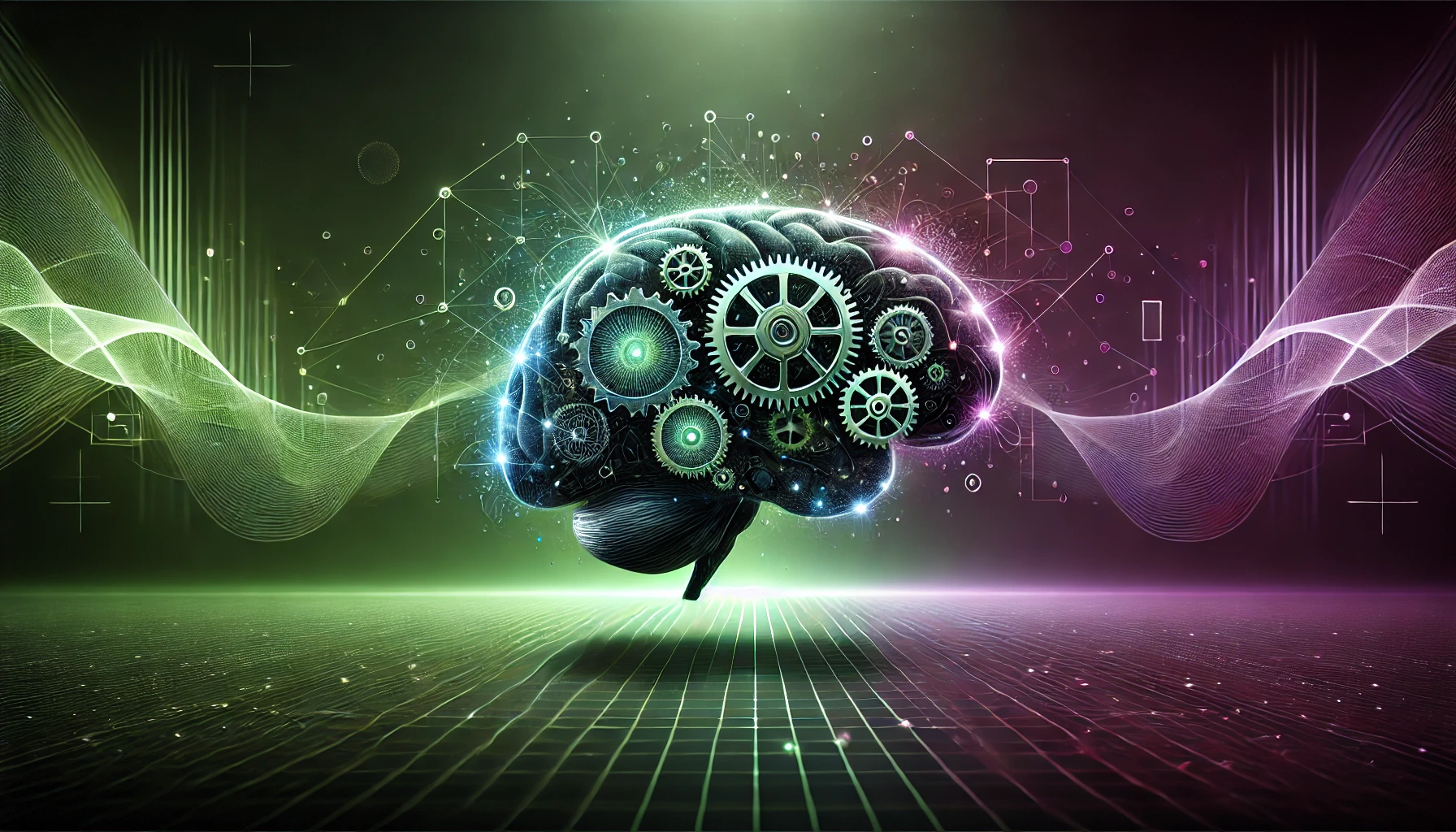
Critical Thinking: The Key to Informed Decisions and Innovative Solutions
Critical thinking is essential for personal and professional success, involving the analysis and evaluation of information to make informed decisions. It enhances problem-solving, decision-making, and adaptability. Historical and modern examples show its transformative power. Techniques like mind mapping and lateral thinking develop this skill, while role-playing and reverse thinking enhance it. Overcoming resistance to new ideas and cognitive biases is crucial. Critical thinking drives innovation across various fields and, when combined with problem-solving methods like SWOT analysis, leads to effective solutions and successful outcomes.
Read more
Work Coordination: A Multifaceted Soft Skill
Work coordination is a complex and multifaceted soft skill that integrates various competencies essential for effective teamwork. It involves synthesizing skills like active learning, negotiation, conflict resolution, empathetic support, and systems evaluation to ensure teams collaborate efficiently and achieve shared goals. Through the use of structured frameworks like the Tuckman Model and the RACI Matrix, as well as practical tools such as gamification and Agile methodologies, teams can enhance their coordination capabilities. This holistic approach not only improves team dynamics but also drives innovation, productivity, and success across diverse work environments.
Read more
Confidence: Trust in Yourself and Inspire Others
Confidence is a cornerstone of effective leadership. This article delves into the importance of confidence, exploring its impact on decision-making, resilience, communication, innovation, team dynamics, and trust. It challenges the misconception that confidence is innate, asserting it's a skill that can be developed through self-awareness, goal setting, feedback, and continuous learning. The article provides practical strategies to build and strengthen confidence, emphasizing the positive impact it has on both personal and professional success.
Read more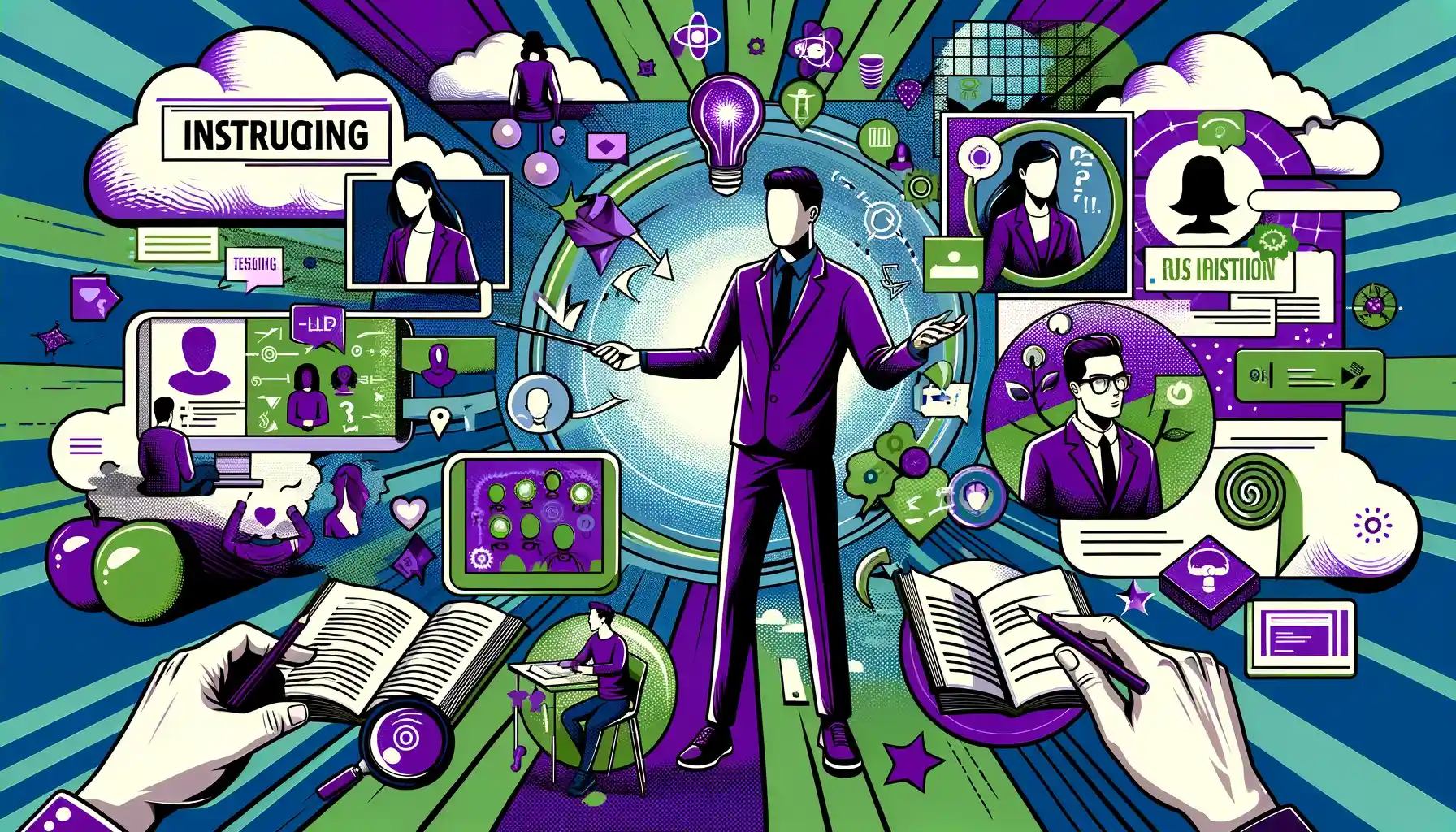
The Art of Instructing: Techniques and Tips
Instructing is a vital communication skill that involves teaching others how to do something. This blog post will delve into the art of instructing, exploring its importance, techniques, and how to improve it. We will also look at some real-life examples and role-playing scenarios to better understand the positive and negative ways of using this skill.
Read more
Unlocking Visualization: Imagining the Future
Visualization is a powerful cognitive ability that allows us to imagine how something will look after it is moved around or when its parts are moved or rearranged. This blog will delve into the importance of visualization, how to develop this skill, and its practical applications in various fields. We will also explore some role-playing scenarios to illustrate the positive and negative ways of using this skill.
Read more
Dependability: Key to Professional Success
The article "Dependability: A Crucial Soft Skill in Work Ethic" underscores the significance of dependability as a key component of professional success. Dependability involves being consistently reliable and trustworthy, essential for building trust within teams and organizations. The article highlights how dependability, distinct from decision autonomy and independence, enhances productivity, fosters a positive work environment, and strengthens team cohesion. Practical strategies for developing dependability include setting realistic goals, effective time management, and open communication. By illustrating real-life examples, the article emphasizes how dependable individuals and teams drive long-term success and contribute to organizational resilience.
Read more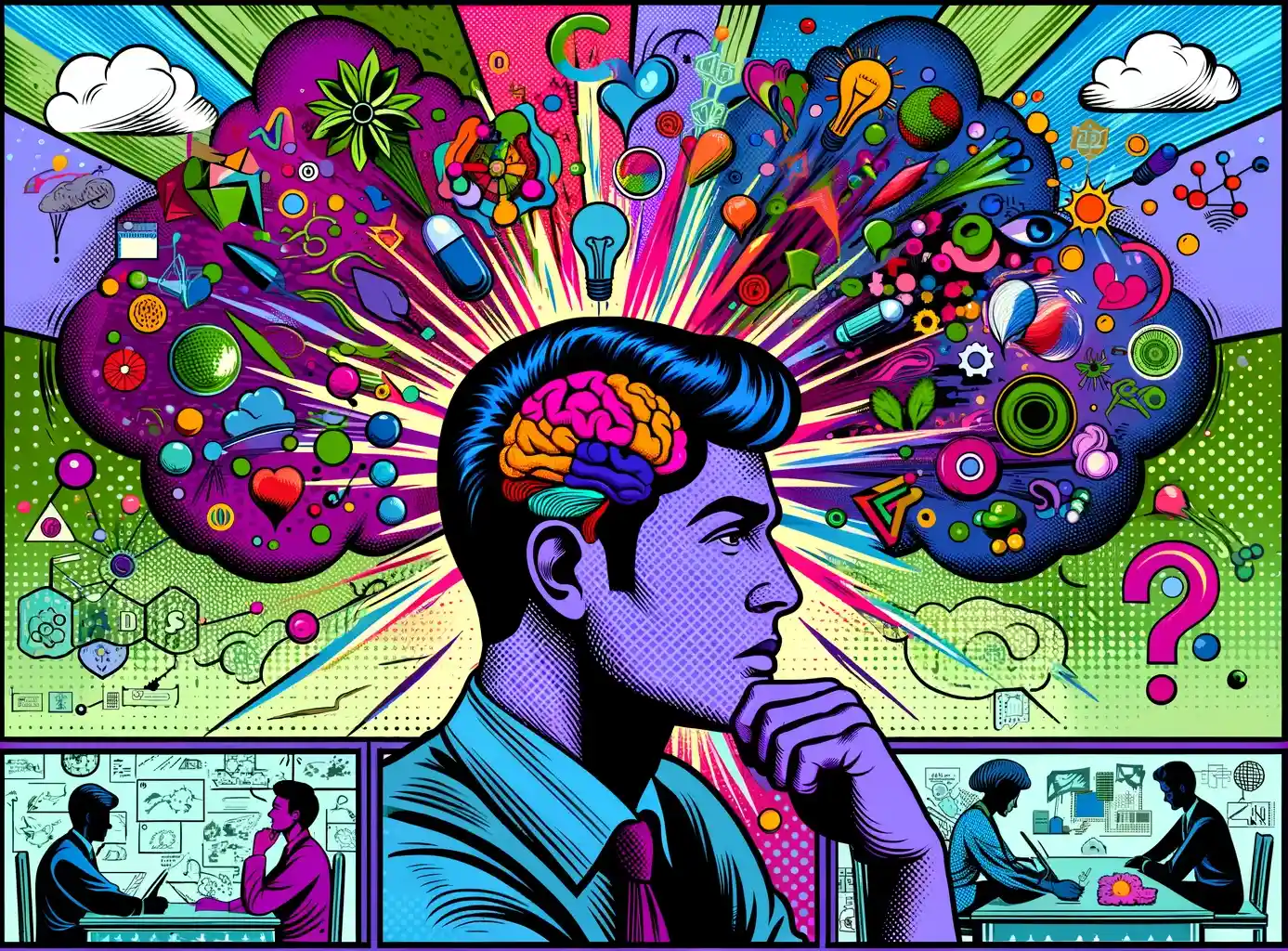
Fluency of Ideas: Generating Creative Thoughts
Fluency of ideas, the ability to generate numerous ideas rapidly, is a crucial skill for fostering creativity and adaptability in both personal and professional settings. This cognitive skill enhances problem-solving efficiency by providing multiple solutions, boosts innovation through diverse perspectives, and increases resilience by allowing individuals to pivot when initial ideas fail. Developing fluency of ideas can be achieved through regular brainstorming, mind mapping, free writing, and engaging in creative exercises. By embracing this skill, individuals and teams can drive innovation, adapt to changes swiftly, and consistently produce effective solutions in various scenarios.
Read more
Enterprising: Cultivating Innovation and Proactivity
The article "Enterprising: Cultivating Innovation and Proactivity" explores the essential qualities and benefits of an enterprising mindset, crucial for success in today's competitive business environment. Enterprising involves creativity, resourcefulness, and decisiveness in pursuing opportunities and solving problems, akin to the innovative approaches of leaders like Steve Jobs. The article highlights the benefits of enterprising, including driving innovation, enhancing efficiency, fostering career growth, and building resilient teams. It also emphasizes the importance of curiosity, risk-taking, resilience, and networking in developing these skills. Practical training methods and real-life examples, such as Sara Blakely's journey with Spanx, underscore how enterprising actions lead to significant achievements. The article concludes by stressing the importance of building strong relationships to amplify the impact of enterprising efforts and provide resources for further development.
Read more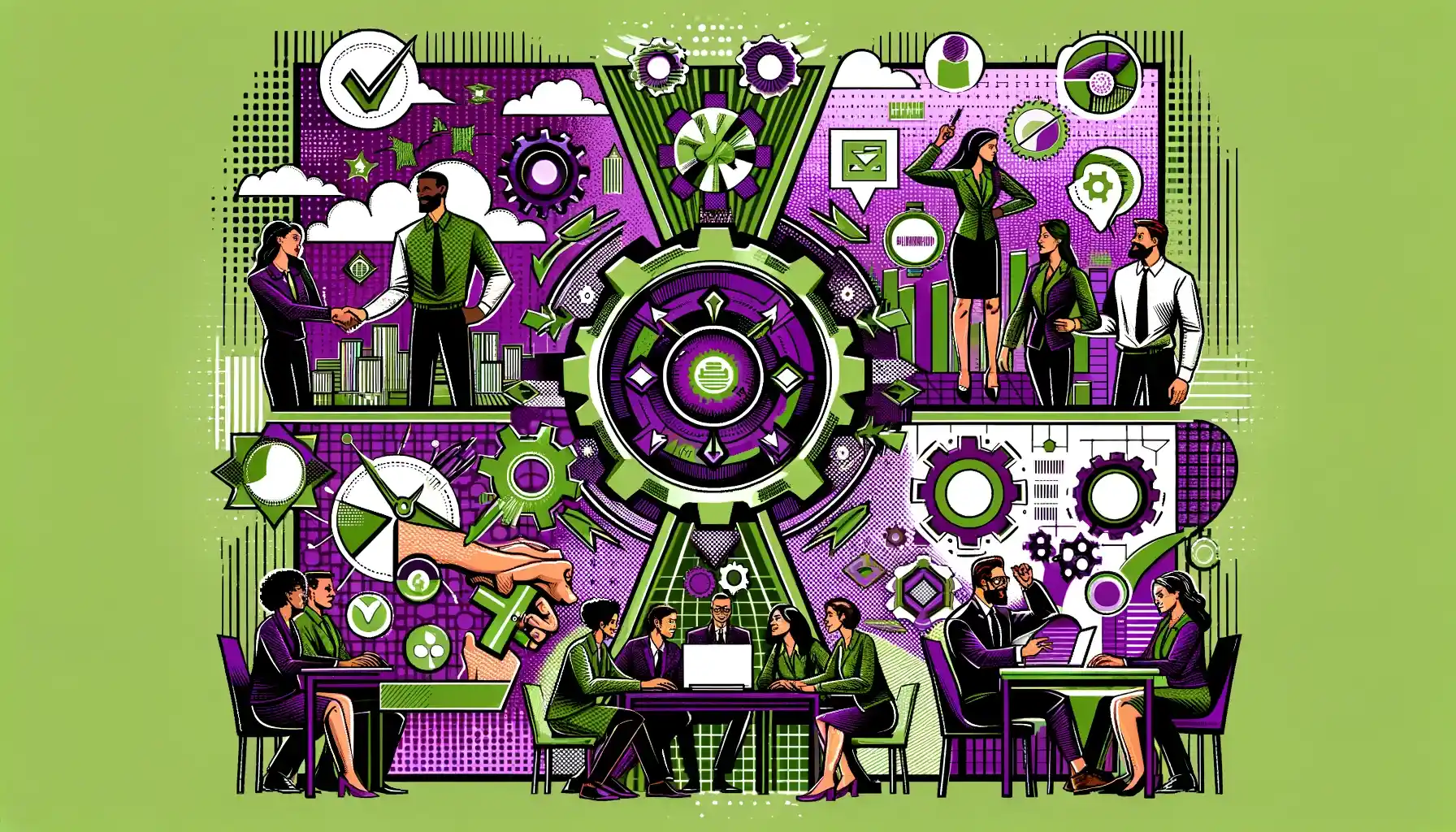
Team Development: The Art and Science of Building Effective Teams
Team Development is essential for building high-performing teams. By fostering trust, communication, and collaboration, it enhances innovation, problem-solving, and efficiency. It's about creating a supportive environment where everyone contributes to shared goals. Effective team development involves clear communication, mutual respect, and opportunities for growth. Overcoming barriers like lack of trust and poor communication is crucial for success. Real-world applications span project kick-offs, regular check-ins, and conflict resolution. Combining team development with enterprising skills, which drive innovation and initiative, creates dynamic and forward-thinking teams.
Read more
Cooperation: Building Bridges in Teamwork
Discover the power of cooperation with our in-depth guide, 'Cooperation: Building Bridges in Teamwork.' This article explores how fostering positive and supportive interactions among team members can lead to enhanced performance, stronger relationships, and innovative solutions. Learn practical strategies for developing cooperation skills, overcoming common barriers, and integrating flexibility to navigate changes seamlessly. Featuring real-life examples and engaging training activities, this comprehensive guide equips you with the tools to create a harmonious and productive work environment. Unlock the potential of cooperation and transform your team dynamics today!
Read more
Persistence: The Power to Endure and Achieve
Persistence is the bedrock of extraordinary achievement. It's the unwavering determination to press on, even when faced with setbacks and challenges. More than just willpower, it's a mindset that fosters resilience, adaptability, and a growth-oriented perspective. From conquering personal goals to scaling professional heights, persistence is the compass that guides you through life's storms. It's the quiet confidence that whispers, "You can do this," when doubt creeps in. Are you ready to harness the power of persistence and unlock your full potential?
Read more
Objective Setting: Vision and Strategy Guide
The article "Objective Setting: The Art of Setting Achievable Goals" emphasizes the importance of clear and strategic goal-setting as a tool to overcome life's inevitable challenges. Setting objectives provides direction, motivation, and accountability, essential for personal and professional growth. The article outlines the benefits of objective setting, such as enhanced focus, measurable progress, and improved decision-making. It also provides strategies for developing this skill, including breaking down goals into manageable steps, seeking feedback, and adjusting to changing circumstances. Real-life examples, such as Jeff Bezos and Simone Biles, illustrate the power of effective objective setting in achieving remarkable success. Additionally, the article addresses common barriers to setting objectives and offers practical training activities to improve this crucial leadership skill.
Read more
Teamwork's Essence: Mastering Coordination
Unlock the secrets of effective teamwork with our comprehensive guide on "Coordination: Synchronizing Efforts for Success." This article delves into the definition, importance, and benefits of coordination, providing practical strategies and engaging real-life examples. Learn how to enhance your coordination skills through interactive games, tools like Gantt charts and RACI matrices, and the complementary skill of empathetic support. Perfect for professionals looking to improve team efficiency and productivity, this guide offers actionable insights and valuable resources to help you master the art of coordination. Join us to transform your team's performance and achieve outstanding results!
Read more
External Relations: Enterprise’s Ambassador
Social perceptiveness is the ability to accurately read and interpret social cues, emotions, and behaviors. This essential skill goes beyond words, focusing on deciphering body language, facial expressions, and tone of voice. You can build stronger connections, improve communication, and enhance your emotional intelligence by honing this ability. From navigating complex social situations to excelling in professional settings, social perceptiveness is a key to success. Practice active listening, mindfulness, and empathy to develop this valuable skill and unlock your potential in interpersonal relationships.
Read more
Training Skills: Educating for Tomorrow
This blog post explores the skill of training, which involves identifying the educational needs of others, developing formal educational or training programs or classes, and teaching or instructing others. We will delve into the importance of this skill, how to develop it, and its application in various scenarios. We will also role-play to illustrate the positive and negative ways of using this skill.
Read more
Working Memory: Boosting Cognitive Capacity
Working memory, a cognitive ability, is the capacity to hold and manipulate information over short periods. It's crucial in daily tasks like following conversations, reading, or problem-solving. This blog explores the concept of working memory, its importance, and how to improve it, catering to beginners, intermediate, and advanced readers. We'll also role-play scenarios to illustrate the effective and ineffective use of working memory.
Read more
Time Sharing: Sharing your most precious thing
Time sharing is the art of effectively managing and sharing time within a team. By strategically allocating tasks, prioritizing efficiently, and fostering open communication, teams can boost productivity, enhance collaboration, and achieve shared goals. Effective time sharing requires a balance of individual time management and collective coordination. Overcoming challenges like procrastination and distractions is crucial for maximizing the benefits of this essential teamwork skill.
Read more
Goal-Oriented: Path to Personal Growth and Professional Mastery
In this blog, we explore the multifaceted nature of being goal-oriented, a critical yet complex soft skill that serves as a compass guiding individuals toward personal growth and professional mastery. This skill, while often discussed in broad terms, is underpinned by several other vital soft skills such as flexibility, active learning, relationship building, objective setting, persistence, resilience, decision-making, and analytical thinking. We delve deep into how these interconnected skills come together to create a goal-oriented mindset, providing you with actionable insights, real-world examples, frameworks, and even metaphors to make the concepts more engaging and applicable to your life.
Read more
Collaboration: The Art of Working Together
Unlock the full potential of your team with our comprehensive guide, "Collaboration: The Art of Working Together." This article delves into the essence of collaboration, its importance, and actionable strategies to enhance this critical soft skill. Learn how to develop collaboration through active participation, effective communication, mutual respect, and shared goals. Discover practical training activities like Lego Serious Play and Escape Room Challenges, and explore real-life scenarios that highlight the transformative power of collaboration. Equip yourself with the complementary skill of time management and access valuable resources to further your collaborative abilities. Join us to create a more innovative, efficient, and cohesive team dynamic.
Read more
Coaching Skills: Leading Others to Success
The article "Coaching: Transforming Potential into Success" emphasizes coaching as a crucial tool for personal and professional growth. Coaching is about guiding individuals to achieve their goals through support, feedback, and encouragement, differing from leadership by focusing on self-discovery rather than direction. Key benefits include fostering growth, enhancing performance, building confidence, and creating supportive environments. Essential coaching skills include active listening, insightful questioning, constructive feedback, and empathy. The article also addresses overcoming common coaching barriers and highlights real-life examples, like Sir Alex Ferguson and Oprah Winfrey, demonstrating coaching's transformative power. Empathy is highlighted as a critical complementary skill that deepens connections and effectiveness. Ultimately, coaching unlocks potential and drives success in various settings.
Read more
Social Perceptiveness: Understanding Reactions
Social perceptiveness is the art of understanding others through their unspoken cues. This essential skill goes beyond words, focusing on deciphering body language, facial expressions, and tone of voice. By honing this ability, you can build stronger connections, improve communication, and enhance your emotional intelligence. From navigating complex social situations to excelling in professional settings, social perceptiveness is a key to success. Practice active listening, mindfulness, and empathy to develop this valuable skill and unlock your full potential in interpersonal relationships.
Read more
Decision Making: Strategies and Solutions
Decision-making is a cornerstone of success, shaping everything from personal lives to corporate strategies. It's a complex interplay of logic, intuition, and courage. While information gathering and analysis are vital, so too are emotional intelligence, adaptability, and a willingness to learn from mistakes. Effective decision-makers are not merely choosers but proactive navigators, steering through uncertainty with confidence. Accountability is the compass guiding these decisions, ensuring actions align with intentions. From crisis management to innovation, strong decision-making drives individuals and organizations forward, leaving a lasting impact.
Read more
Analytical Thinking: Finding a Pin in the Ocean
The article "Analytical Thinking: Finding a Pin in the Ocean" emphasizes the importance of analytical thinking in today’s data-driven world. It explains that analytical thinking involves systematically breaking down complex data to identify patterns and solve problems, much like finding a crucial piece of information in a vast ocean of data. The article highlights the benefits of analytical thinking, including improved problem-solving, decision-making, and efficiency across various fields like business, healthcare, and engineering. It also provides strategies for developing this skill, such as engaging in puzzles, critical thinking exercises, and using technology. Ultimately, analytical thinking is presented as an essential tool for navigating complex information and making informed decisions.
Read more
Time Pressure: Managing Workload Effectively
In today's fast-paced world, time pressure is a common challenge. This blog explores the concept of time pressure, its impact on productivity, and strategies to manage it effectively. We delve into the basics for beginners, explore intermediate techniques, and provide advanced insights for seasoned professionals. We also include a role-playing section to illustrate the positive and negative ways of dealing with time pressure.
Read more
The Illusion of Ease: Rethinking Technology in Soft Skills Assessment
The article explores the risk of relying too heavily on traditional personality models and quick technological fixes in assessing human behavior. It challenges the idea that simplifying human traits into rigid categories or using fast, convenient AI tools leads to real insights. Instead, it argues for simulations and adaptive AI environments that mirror authentic scenarios, offering deeper, more meaningful assessments. The takeaway? Technology should enhance, not simplify, the understanding of human complexity, focusing on quality insights over speed.
Read more
The Hidden Costs of Bad Hiring: Why Soft Skills Matter More Than You Think
Neglecting soft skills in hiring can cost businesses up to $17,000 per bad hire, with 60% of these costs due to poor communication, teamwork, and adaptability. Unlike technical skills, soft skills are essential for productivity, team morale, and employee retention. Utilizing AI-driven tools like WiseWorld.ai for soft skills assessments enhances team cohesion and reduces turnover. Ignoring soft skills leads to high costs, disrupted workflows, and a toxic work environment. Prioritizing soft skills in recruitment builds a resilient, efficient workforce, ensuring sustainable growth and a positive company culture.
Read more
Empower People: The Essential Role of Soft Skills in Modern Workplaces
In today’s dynamic work environment, soft skills like communication, collaboration, and emotional intelligence are essential for fostering a non-toxic culture. This guide highlights how nurturing these skills boosts productivity, enhances employee retention, and drives innovation. As teams become smaller and more diverse, especially in remote and hybrid settings, investing in soft skills is crucial for building resilient and high-performing organizations. Discover actionable strategies to transform your workplace into a thriving, inclusive, and successful environment.
Read more
Mastering Soft Skills: The New Benchmark for Seniority in Today’s Workplace
In today’s fast-paced business world, traditional markers of seniority like age and tenure are giving way to the mastery of soft skills. "Mastering Soft Skills: The New Benchmark for Seniority in Today’s Workplace" explores how attributes such as communication, emotional intelligence, and adaptability are now essential for leadership and career advancement across all generations. Highlighting the strengths of tech-savvy younger generations and the importance of generational synergy, the article underscores that experience and interpersonal abilities, rather than age, define true seniority. With insights on integrating soft skills with technological advancements and real-world case studies from leaders like Google and Microsoft, this piece demonstrates how fostering these essential skills drives organizational success and innovation in a competitive global market.
Read more
The Strategic Imperative of Soft Skills and Employee Branding
In today’s competitive business landscape, prioritizing soft skills is essential for boosting employee performance and enhancing workplace energy. Organizations that invest in soft skills development see a 25% increase in performance and a 30% rise in workplace morale, while 94% of employees stay longer when their career growth is supported. Strong employee branding attracts top talent and improves retention by 50%. Leveraging innovative methods like AI-powered training ensures effective skill development and provides valuable insights for HR management. Investing in soft skills and employee branding is a strategic move for sustained organizational success and a competitive edge.
Read more
Boost Workplace Success with Empathy
Empathy is essential for enhancing team cohesion, leadership, and employee engagement in today’s workplaces. The “Nearsighted Empathy” study shows that higher empathy levels make colleagues feel closer, improving collaboration and trust. Implementing empathy-centric policies, creating inclusive workspaces, and using AI-based empathy training can strengthen emotional intelligence and drive organizational success. Prioritizing empathy fosters a harmonious and productive environment, leading to greater achievements and a positive company culture.
Read more
Essential Soft Skills for Data Scientists
In the ever-evolving field of data science, technical expertise is crucial, but soft skills like communication, analytical thinking, and problem-solving are just as vital. Mastering these interpersonal and cognitive skills allows data scientists to effectively collaborate, lead projects, and adapt to new challenges. Key soft skills include analytical thinking for deriving insights, active listening to align with business goals, collaboration to achieve common objectives, and critical thinking to validate conclusions. Flexibility, initiative, time management, and empathy also foster innovation and successful project execution. Combining technical prowess with strong soft skills enhances a data scientist's career and strengthens their impact on business outcomes.
Read more
Essential Soft Skills for Software Developers
In software development, technical skills are essential, but mastering soft skills like communication, problem-solving, and time management is what sets exceptional developers apart. These skills help align stakeholder expectations, advocate for technical decisions, foster effective collaboration, and enhance adaptability in a dynamic environment. By focusing on negotiation, attention to detail, critical thinking, and empathy, developers can navigate complex challenges, lead projects, and contribute to a positive team culture. Ultimately, combining technical expertise with these key soft skills enables developers to translate their knowledge into impactful solutions, driving both personal growth and organizational success.
Read more
Essential Soft Skills for Cybersecurity Analysts
Soft skills are vital for cybersecurity analysts to bridge the gap between technical expertise and human interaction. These skills, such as critical and analytical thinking, collaboration, conflict resolution, and active listening, enable analysts to effectively address complex cybersecurity challenges and work cohesively with teams. Attributes like decision-making, empathy, persistence, and service orientation further enhance an analyst’s ability to communicate, support stakeholders, and respond efficiently during crises. Time management is crucial in this fast-paced field to prioritize tasks and maintain productivity. In essence, these soft skills elevate a cybersecurity analyst's role, making them more effective and adaptable in safeguarding digital environments.
Read more
Essential Soft Skills for UX/UI Designers
In UX/UI design, technical skills are crucial, but mastering soft skills like empathy, creativity, collaboration, and critical thinking is essential to truly excel. These soft skills enable designers to create user-centered experiences, work effectively in teams, and adapt to changing conditions. Empathy helps understand user needs, while creative thinking drives innovative solutions. Active listening and collaboration foster clear communication and team synergy, ensuring cohesive design projects. WiseWorld’s immersive, AI-driven simulations provide an engaging platform for designers to hone these skills, empowering them to build intuitive, impactful designs that resonate with users and elevate their careers.
Read more
Essential Soft Skills for Machine Learning Engineers
In the rapidly evolving field of machine learning, technical expertise is crucial, but mastering soft skills like analytical thinking, active learning, collaboration, and resilience sets exceptional engineers apart. These skills empower Machine Learning Engineers to navigate complex data challenges, innovate effectively, and communicate solutions clearly within diverse teams. At WiseWorld, we recognize the importance of these abilities, offering immersive AI-driven social simulations that cultivate critical soft skills in realistic scenarios. By honing these skills, engineers can lead transformative projects, align technical solutions with business goals, and drive impactful change in their organizations. Unlock your full potential with WiseWorld’s dynamic learning approach and elevate your career in machine learning.
Read more
Mastering Feedback: The Essential Skill for Enhancing Communication, Creativity, and Growth
Feedback is not just a simple soft skill; it's a complex, multifaceted ability essential for personal and professional growth. This article explores the critical role feedback plays in effective communication and creativity, detailing how it integrates skills like empathy, active listening, and adaptability. By examining real-world examples and providing actionable frameworks, the article offers practical strategies for mastering feedback, making it a powerful tool for fostering innovation, improving performance, and building strong, collaborative relationships.
Read more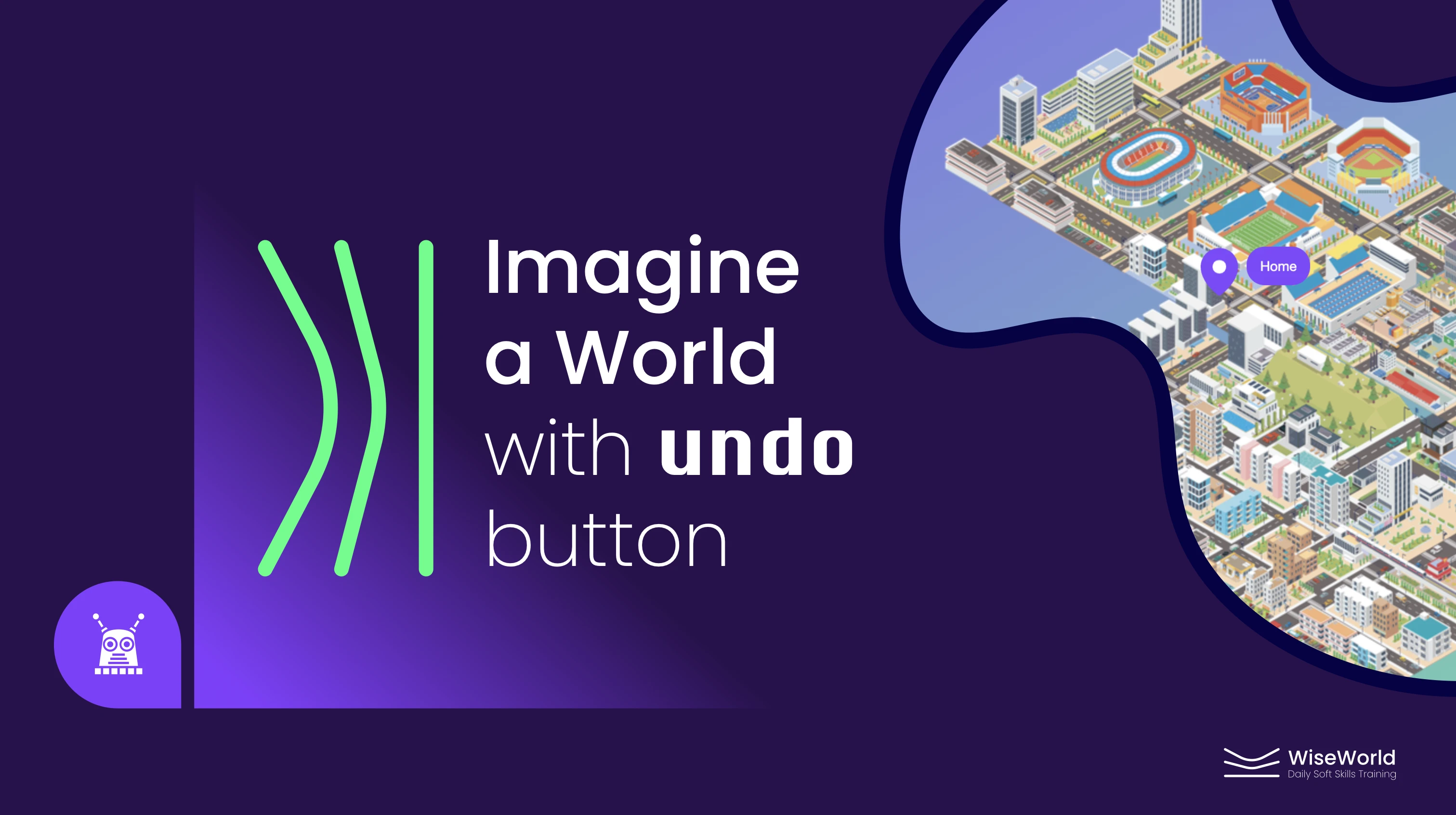
Quantitative Evaluation of Soft Skills Assessment
Soft skills are essential in AI-driven workplaces, but measuring them is challenging. This study evaluates WiseWorld, an AI-powered platform assessing 44 soft skills through story-based interactions. Data from 66 participants, focusing on 52 active users, showed moderate reliability (CV range of 70 to 100) and consistent performance. With an average playtime of 19 minutes and retention rates of 63% on day 1 and 41% on day 3, WiseWorld effectively engages users and provides meaningful skill evaluations. The findings position WiseWorld as a valuable tool for workforce development in an AI-driven economy.
Read more
Communication: The Keystone of All Soft Skills
Communication is the cornerstone of all soft skills, crucial for success in personal and professional life. It encompasses verbal and non-verbal methods, active listening, and writing. Effective communication builds relationships, fosters collaboration, resolves conflicts, enhances leadership, and promotes personal growth. Key skills include written expression, active listening, negotiation, and persuasion. Overcoming barriers such as cultural and language differences is essential. Learning from exemplary communicators like Jacinda Ardern, Oprah Winfrey, and Satya Nadella, and employing strategies like mindfulness and emotional intelligence, can significantly enhance communication abilities.
Read more
Leadership: Inspire, Motivate, Achieve
The article "Leadership: Inspire, Motivate, Achieve" explores the multifaceted nature of leadership, emphasizing its crucial role in guiding, motivating, and inspiring teams toward success. Leadership is depicted as a blend of essential soft skills, including vision-setting, resilience, innovation, and inclusivity, which collectively drive organizational growth and adaptability. The article highlights the importance of effective leadership in providing direction, boosting morale, fostering innovation, and building strong, resilient teams. Real-life examples of leaders like Angela Merkel and Mary Barra illustrate the transformative impact of strong leadership. The article concludes by underscoring that leadership development is an ongoing journey requiring continuous learning, self-reflection, and practical experience.
Read more
Time Management: Take the control of life
The article "Time Management: Take Control of Life" emphasizes the irreplaceable value of time and its impact on both personal and professional success. It outlines time management as a strategic approach involving goal-setting, prioritization, and the use of techniques to maximize productivity and achieve a balanced life. The article highlights the benefits of effective time management, such as enhanced productivity, reduced stress, and better work-life balance. It also provides practical strategies and exercises for developing time management skills, overcoming common barriers like procrastination, and improving decision-making. By mastering time management, individuals can unlock their full potential, leading to greater success and fulfillment in life.
Read more
Work Ethic: The Key to Long-Term Success and Personal Fulfillment
The article "Work Ethic: The Key to Long-Term Success and Personal Fulfillment" highlights the critical role of a strong work ethic in achieving success. It underscores that ethical behavior, consistency, and integrity are foundational to building trust and respect, which are essential for long-term success. Core skills such as dependability, time management, attention to detail, persistence, and resilience are emphasized as key components of a robust work ethic. The article also illustrates how a strong work ethic can lead to significant achievements through real-life examples and offers practical advice on cultivating these skills. Ultimately, a strong work ethic not only drives immediate success but also leaves a lasting, positive legacy.
Read more
Resilience: The Art of Bending Without Breaking
In a world marked by constant change and unexpected challenges, resilience is the cornerstone of personal and professional success. It's more than merely enduring hardship; it's about transforming adversity into opportunity, growth, and strength. Discover how to cultivate this essential quality through evidence-based strategies, inspiring stories, and practical tools. From understanding the science behind resilience to mastering techniques for building it, this comprehensive guide empowers you to navigate life's complexities with grace, determination, and unwavering optimism. Unleash your inner potential and embark on a journey towards a more resilient, fulfilling life.
Read more
Problem-Solving: Find your way out
Effective problem-solving is a crucial skill that drives success in both personal and professional contexts. This article explores the importance of problem-solving, highlighting its role in enhancing productivity, driving innovation, and improving decision-making. It delves into essential skills like critical thinking, creativity, and adaptability, and provides real-life examples of how individuals and organizations have thrived through strategic problem-solving. By mastering these skills and overcoming common barriers, you can navigate challenges with confidence, foster innovation, and create a lasting impact. The article also offers resources for further developing problem-solving abilities, ensuring continuous growth and success.
Read more
Teamwork: The Heartbeat of Progress
Teamwork is the heartbeat of progress, encompassing essential soft skills like coordination, team development, collaboration, cooperation, and time sharing. These skills foster a collaborative environment where diverse perspectives drive innovation and productivity. Effective teamwork requires a mindset that values diversity, trust, and open communication. Overcoming barriers such as social loafing and communication breakdowns is crucial for success. Real-life examples, such as the Human Genome Project and the Thai Cave Rescue, illustrate the power of teamwork in achieving extraordinary results. By leveraging resources like books, movies, online platforms, and board games, individuals and teams can enhance their teamwork skills and achieve remarkable success.
Read more
Transforming Soft Skills Assessment with AI and Real-Life Simulations
In today’s evolving job market, soft skills like communication, leadership, and problem-solving are crucial, often more so than hard skills. Traditional assessment methods can be biased, but WiseWorld revolutionizes this with AI-powered real-life simulations. Users engage in interactive scenarios, with AI evaluating 44 key soft skills and visualizing results through the dynamic PowerWheel chart. This innovative approach provides recruiters with aggregated, privacy-compliant data to make precise hiring decisions. WiseWorld sets a new benchmark for soft skills assessment, offering a realistic, objective, and comprehensive evaluation of the modern job landscape.
Read more
Gamification in Human Resource Management: A Comprehensive Guide
Gamification in Human Resource Management (HRM) revolutionizes employee engagement by transforming mundane tasks into exciting, game-like experiences. By integrating game design elements such as leaderboards, badges, and challenges, HR processes like recruitment, onboarding, and training become more interactive and effective. Platforms like WiseWorld.ai exemplify this shift, offering immersive, AI-driven environments where employees can develop skills through personalized avatars, dynamic narratives, and real-time feedback. Applying gamification frameworks like Octalysis, MDA, and RAMP enhances motivation, creativity, and a sense of purpose, leading to higher productivity and employee retention. As organizations seek to optimize their workforce, gamified HRM solutions like WiseWorld.ai will play a crucial role in shaping the future of work, making training and development both engaging and impactful.
Read more
Inductive Reasoning: Forming Logical Rules
Inductive reasoning involves making broad generalizations from specific observations, essential in identifying patterns and forming hypotheses. It enhances analytical thinking, improves predictive capabilities, and increases adaptability. Develop this skill through curiosity, questioning assumptions, pattern recognition, and data analysis. Professionally, it aids in research, business strategy, team collaboration, quality control, and customer service. Overcome biases by considering multiple hypotheses and embracing ambiguity. Combine with analytical thinking for robust decision-making and innovation. Practice regularly to unlock full cognitive potential.
Read more
Learning Strategies: Enhancing Knowledge
Learning strategies are vital cognitive skills for efficiently acquiring and retaining knowledge. These strategies involve planning, monitoring, and evaluating learning processes, crucial for personal and professional growth. Effective learning methods boost adaptability and foster lifelong learning. For instance, Marie Curie's meticulous research and a developer's structured approach to mastering Python exemplify successful learning strategies. Key elements include metacognition, curiosity, reflective thinking, and self-assessment. Techniques like role-playing, seeking expert advice, and continuous feedback are essential. Overcoming resistance to change and managing time constraints create a supportive learning environment. Flexibility enhances these strategies, allowing adaptation to new information. By integrating these methods, you can boost learning efficiency and success in various contexts.
Read more
Soft skills ensure 85% of career success
Soft skills now account for 85% of career success, far outweighing technical abilities. Research from Harvard, Carnegie, and Stanford highlights the critical role of communication, adaptability, and emotional intelligence in securing jobs, earning promotions, and leading teams. In an era shaped by Gen Z and AI, enhancing soft skills is essential for collaboration, innovation, and employee retention. Invest in developing your interpersonal skills to unlock greater professional growth and achieve lasting success.
Read more
2030: A Soft Skills-Dominated Job Market
This blog explores the increasing importance of soft skills in the modern workplace, as highlighted by Deloitte's 2017 report. It provides insights and examples for readers at different skill levels, and includes a role-playing section to demonstrate effective and ineffective use of soft skills.
Read more
Accountability in Leadership: Taking Responsibility
The article "Accountability: A Crucial Soft Skill in Leadership" emphasizes the importance of accountability in leadership, highlighting it as a key factor for fostering trust, collaboration, and overall organizational success. Accountability is defined as taking responsibility for one's actions, decisions, and outcomes, which in turn drives higher performance, engagement, and better decision-making. The article outlines the benefits of accountability, such as enhanced trust and organizational growth, and provides strategies for developing this skill, including setting clear goals, providing feedback, and leading by example. It also discusses practical training methods to instill accountability, real-life examples of its successful implementation, and addresses common barriers to accountability in the workplace. The piece concludes by linking task mastery to accountability, underscoring the need for continuous learning and mentorship in developing a culture of responsibility.
Read more
Negotiation: Unlocking the Power of Strategic Dialogue for Success
Negotiation is a fundamental skill essential for achieving success in both personal and professional spheres. From securing better deals and resolving conflicts to advancing careers and building strong relationships, effective negotiation can significantly impact outcomes. Historical examples like Nelson Mandela's negotiations during the end of apartheid and corporate mergers such as Chrysler-Fiat highlight the transformative power of strategic dialogue. Developing negotiation skills involves understanding your opponent's mindset, planning strategically, building trust, and gaining relevant knowledge. Overcoming common barriers like biases and lack of confidence, alongside enhancing persuasion skills, are key to becoming a successful negotiator.
Read more
Self-Control: Maintaining Composure in Chaos
Self-control is a vital skill that helps individuals maintain composure, keep emotions in check, control anger, and avoid aggressive behavior, even in challenging situations. This blog explores the importance of self-control, how to develop it, and its application in various scenarios. It also includes a role-playing section to illustrate the positive and negative ways of using self-control.
Read more
Pattern Recognition: Identifying Hidden Trends
Pattern recognition is a cognitive ability that allows us to identify or detect known patterns hidden in other distracting material. This blog will delve into the importance of pattern recognition, how it can be developed, and its application in various scenarios. We will also explore the consequences of poor pattern recognition through role-playing scenarios.
Read more
Empowering Your Career: The Vital Interplay of Soft and Hard Skills
In today's job market, both hard and soft skills are crucial for success. Hard skills like programming and data analysis provide technical expertise, while soft skills such as communication, problem-solving, and emotional intelligence are essential for effective teamwork and leadership. As AI and automation reshape industries, blending technical knowledge with interpersonal abilities allows professionals to navigate challenges and drive innovation. Continuous learning in both areas ensures readiness for the evolving workplace, setting you apart and helping you thrive.
Read more
Cognitive Abilities: The Essential Pillars of Soft Skills
Cognitive abilities are the foundation of effective soft skills, integral for navigating the complexities of modern life. These abilities, including flexibility, deductive reasoning, critical thinking, and active learning, enable individuals to make informed decisions, solve problems, and innovate. Unlike other soft skills focused on interpersonal interactions, cognitive skills are rooted in our mental processes, driving adaptability and creativity. Real-life examples, such as Robinson Crusoe's survival, Thomas Edison's innovations, and Satya Nadella's leadership at Microsoft, underscore their importance. By developing these abilities, individuals can achieve personal and professional excellence, fostering continuous improvement and resilience in ever-changing environments.
Read more
Learning by Doing: The Power and Impact
"Learning by doing," or experiential learning, is transforming education and professional development by emphasizing active participation and direct experience. Unlike traditional methods, this approach involves practical activities that enhance understanding and retention of knowledge. Historical practices, from ancient agricultural skills to Native American hunting techniques, highlight its effectiveness. In modern settings, it is crucial in training fields like aviation, surgery, and trades. Technological advancements such as AI, VR, and AR are further enhancing this immersive and personalized learning method. Embracing experiential learning empowers individuals to tackle complex challenges, innovate, and grow both personally and professionally.
Read more
Independence: Being courageous but humble
The article "Initiative: Skills that Raise Your Flag" emphasizes the critical role of initiative in personal and professional growth. Initiative is defined as the proactive ability to start tasks independently, driving innovation, problem-solving, and leadership. The article distinguishes initiative from being enterprising, explaining that while initiative is about taking the first step, enterprising involves sustaining and growing that effort. It highlights the benefits of initiative, including enhanced employee morale, increased productivity, and fostering a culture of innovation. Strategies to develop initiatives, such as promoting a proactive mindset, encouraging ownership, and providing training, are discussed alongside real-life examples from companies like Pixar and 3M. The article concludes by emphasizing that initiative, complemented by creativity and idea generation, is essential for driving progress and success in any organization.
Read more
Persuasive Influence: Convincing Communication
In this blog, we delve into the art of persuasive influence, a crucial communication skill that can be used to convince others to buy merchandise, change their minds, or alter their actions. We'll explore the basics, delve into advanced techniques, and provide real-life examples to illustrate the power of persuasive influence. We'll also role-play scenarios to demonstrate the positive and negative ways of using this skill.
Read more
Decision Autonomy: Empowering Leadership
The article "Decision Autonomy: Empowering Leadership" emphasizes the significance of decision autonomy in both personal and professional contexts, highlighting its role in fostering innovation, efficiency, and employee satisfaction. Decision autonomy is defined as the freedom to make choices and take responsibility for outcomes, which is crucial for effective leadership. The article outlines the numerous benefits of decision autonomy, such as enhanced employee morale, increased productivity, and better decision quality, while also discussing strategies for developing this skill through empathy, open communication, and a supportive environment. Real-life examples from companies like Netflix, Valve, and Google illustrate how decision autonomy can drive organizational success. The piece concludes by emphasizing the importance of combining decision autonomy with decisive judgment, creating a powerful synergy that promotes a resilient and engaged workforce.
Read more
Quantitative Estimation: Measure with your eyes
This guide delves into the critical skill of quantitative estimation, essential for accurate decision-making, resource management, and strategic planning. It covers practical strategies for developing estimation skills, such as practice, using tools, and continuous learning. Real-life examples from various fields, including construction, marketing, and finance, illustrate the importance and impact of precise estimation. We also address common barriers and offer solutions to overcome them. Additionally, the guide emphasizes the complementary skill of attention to detail, enhancing the accuracy and reliability of estimates. Whether you're new to estimation or experienced, this guide provides valuable insights to improve your skills.
Read more
Prominence in the Workplace: Leadership Values
In this blog, we delve into the concept of 'Prominence' in the workplace, a value that is often associated with leadership roles. We explore how this value can be satisfied through opportunities for advancement, authority, recognition, and social status. We also provide practical examples and role-playing scenarios to illustrate the positive and negative ways of using this value.
Read more
Relationships: Fostering Teamwork and Values
In this blog, we delve into the importance of relationships in the workplace, focusing on the value of teamwork, co-worker relationships, and moral values. We'll explore how these elements contribute to a friendly, non-competitive environment that fosters productivity and job satisfaction. We'll also provide practical examples and role-playing scenarios to illustrate these concepts.
Read more
Service Orientation: Helping Others Effectively
Service orientation is the cornerstone of outstanding customer service, characterized by proactive and empathetic anticipation of others' needs. This skill fosters supportive and cooperative environments in both personal and professional settings. Service-oriented individuals enhance team dynamics, strengthen relationships, and drive better outcomes through reliability and empathy. Key development areas include cultivating empathy, being proactive, improving communication, reflecting on experiences, and seeking feedback. When paired with empathetic support, service orientation fosters a compassionate, cooperative, and productive atmosphere, leading to personal fulfillment and a positive societal impact. Embrace service orientation to transform customer experiences and foster meaningful connections.
Read more
Adaptability and Flexibility: Embracing Flexibility and Adaptability in the Workplace
Adaptability and flexibility are crucial cognitive skills in today’s fast-paced work environment. These skills allow employees to control when, where, and how they work, enhancing their ability to balance professional and personal responsibilities. Flexibility improves problem-solving, teamwork, job satisfaction, and retention. Key practices include flexible working hours, remote work, and results-only work environments. Developing a flexible mindset involves embracing change, practicing mindfulness, and continuous learning. Training through workshops and role-playing can foster these skills. Balancing flexibility with resilience ensures effective adaptability without compromising core principles, which is essential for navigating diverse and dynamic work scenarios.
Read more
Integrity: The Foundation of Ethical Conduct
Integrity is a fundamental trait that everyone should possess. It's about being honest, ethical, and having strong moral principles. This blog post will delve into the importance of integrity, how it can be developed, and its impact on personal and professional life. We will also explore real-life scenarios to illustrate the positive and negative consequences of integrity.
Read more
Deductive Reasoning: Logical Problem Solving
Deductive reasoning significantly enhances decision-making and problem-solving. By developing this skill, you can approach challenges with a clear, logical mindset, leading to better outcomes in both your personal and professional life. Embrace deductive reasoning to navigate complex situations, improve decision accuracy, and foster critical thinking. Implementing structured and logical approaches ensures reliable and effective solutions, paving the way for continuous improvement and success.
Read more
Empathy Support: The Heart of Human Connection
Empathetic support is vital in today's world, going beyond sympathy to deeply understand and share others' feelings. This skill enhances personal and professional relationships, building trust, improving communication, and boosting emotional well-being. It requires active listening, emotional intelligence, and compassion. Developing empathetic support involves practice, patience, and understanding cultural differences. It's essential in various settings, from workplaces to communities, and helps reduce conflicts and foster inclusivity. Overcoming barriers like social anxiety is crucial for effective empathetic support. Real-life examples, such as Princess Diana's humanitarian efforts and Trevor Noah's empathetic storytelling, highlight its profound impact. Mastering empathetic support creates positive, supportive environments, enriching personal and professional interactions.
Read more
Impact of Decisions: Consequences and Skills
This blog explores the impact of decisions on various aspects such as people, reputation, and financial resources of an employer. It delves into the importance of decision-making skills, the consequences of poor decision-making, and how to improve these skills. It also includes a role-playing section to illustrate the positive and negative ways of decision-making.
Read more
Health Oversight: For Sustainable Success
Health oversight is essential for modern organizations, enhancing employee engagement, reducing healthcare costs, and fostering resilience. By prioritizing physical, mental, and emotional well-being, leaders create a thriving workplace. Benefits include improved morale, productivity, and organizational reputation. Effective strategies involve empathy, proactive leadership, work-life balance, open communication, and health-conscious policies. Case studies from Google, PepsiCo, and Salesforce highlight successful integration. Merging health oversight with decision-making ensures sustainable excellence, making it a strategic imperative for long-term success.
Read more
Written Expression: Conveying Ideas Clearly
"Written Expression: Mastering the Art of Communication" underscores the significance of effective writing in both personal and professional realms. It defines written expression as the clear conveyance of thoughts through writing, essential for credibility and precise communication. Key benefits include enhanced learning and memory retention. The article provides techniques for improving writing skills, such as daily practice, reading widely, and seeking feedback, while addressing barriers like writer’s block and fear of judgment. Examples like Martin Luther King Jr.'s impactful letters highlight the transformative power of written words. The piece concludes with recommendations for continuous practice and using AI tools like WiseWorld.ai to refine writing skills.
Read more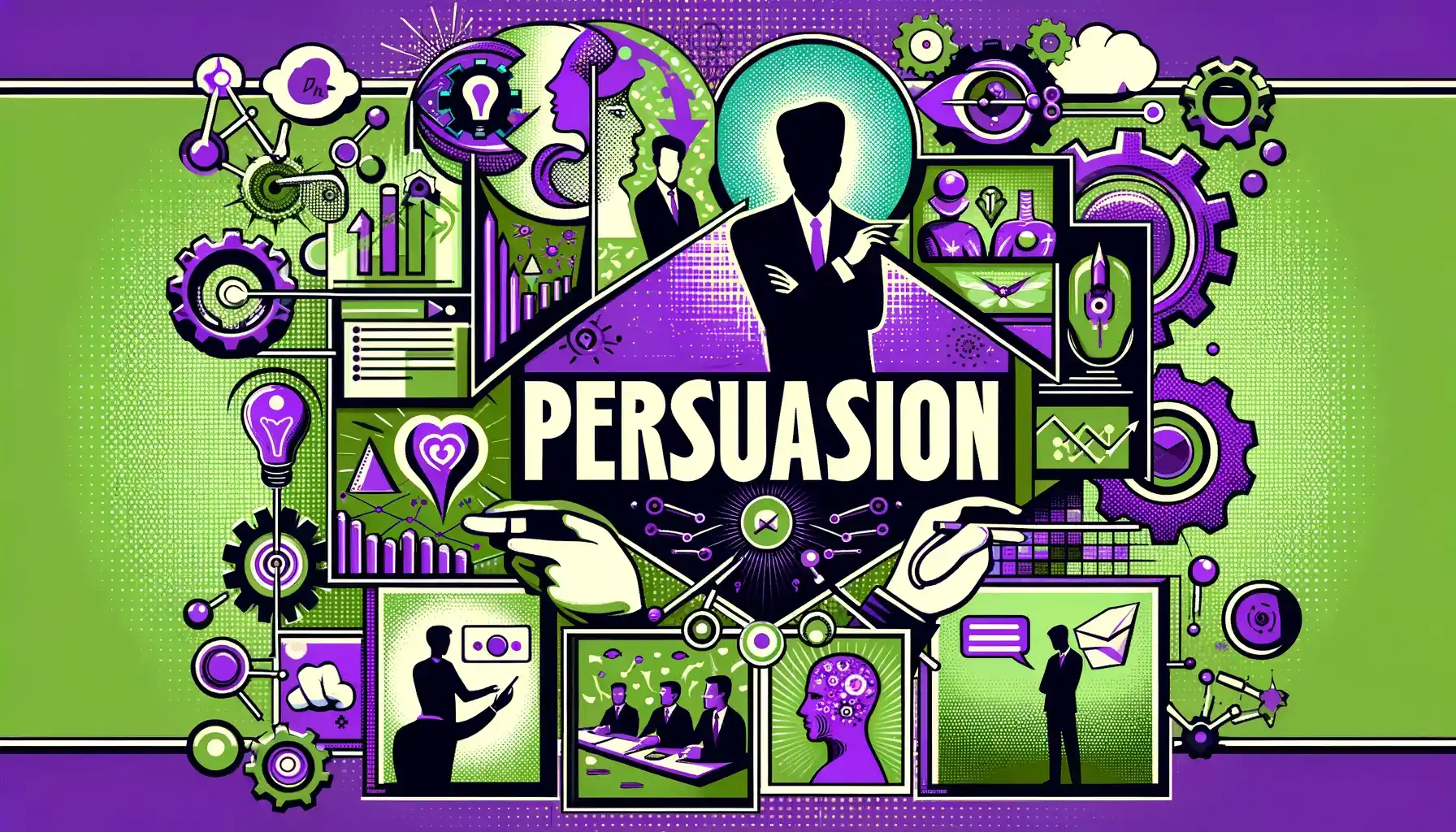
Persuasion: The Power of Influencing Others
Persuasion is the art of influencing others' thoughts and actions through logical arguments, emotional appeals, and credibility. Unlike negotiation, which seeks mutual agreement, persuasion aims to convince others of your viewpoint. Key benefits include enhanced communication, career advancement, conflict resolution, and leadership. To develop persuasion skills, understand your audience, build strong arguments, appeal to emotions, and practice active listening. Overcoming barriers like lack of confidence and cognitive biases is crucial. In the workplace, persuasion is vital for pitching ideas, negotiating, managing teams, and resolving conflicts. Effective persuasion fosters personal and professional success.
Read more
Inter-Team Communication: Enhancing Operations
Inter-team communication is a vital skill that ensures smooth operations within an organization. This blog explores the importance of effective communication, the different methods of communication, and how to improve your communication skills. It also includes role-playing scenarios to illustrate the positive and negative ways of using inter-team communication.
Read more
Perceptual Speed: Quick and Accurate Analysis
Perceptual speed is a cognitive ability that allows us to quickly and accurately compare similarities and differences among various sets of data. This blog will delve into the importance of perceptual speed, how it can be developed, and its application in real-life scenarios. We will also explore the consequences of lacking this skill and how it can be improved.
Read more
Systems Evaluation: Enhancing Efficiency and Decision-Making
Systems evaluation is the microscope for organizational health. It's the art and science of understanding how interconnected components work together to achieve desired outcomes. By examining the intricate web of processes, people, and technology, organizations can identify bottlenecks, optimize workflows, and measure performance against strategic goals. This data-driven approach empowers businesses to make informed decisions, enhance efficiency, and drive innovation. From supply chains to healthcare, and government education, systems evaluation is the key to unlocking hidden potential and achieving sustainable success.
Read more
Creative Thinking: Make ways if you didn't find one
Discover the transformative power of creative thinking in our latest blog! Creative thinking drives innovation, problem-solving, and adaptability, essential in today's dynamic world. Learn how to develop this crucial skill with practical techniques like SCAMPER, mind mapping, and role reversal. Explore inspiring real-life examples, from Dyson's bagless vacuum to Airbnb's groundbreaking business model. Understand the benefits of creative thinking, including enhanced problem-solving, increased adaptability, and personal fulfillment. Plus, discover how attention to detail complements creativity for flawless execution. Unlock your potential and drive meaningful progress today!
Read more
Attention to Detail: Find what matters most
The article "Attention to Detail: Find What Matters Most" underscores the importance of meticulousness in tasks to ensure accuracy, prevent errors, and enhance decision-making. Attention to detail is about noticing and addressing every small aspect of a task or process, which leads to higher quality work, better problem-solving, and increased credibility. The article suggests practical ways to develop this skill, such as using checklists, practicing mindfulness, and conducting regular self-reviews. It also highlights the role of inductive reasoning in making informed decisions based on detailed observations. Overall, attention to detail is presented as a crucial skill for achieving excellence in both personal and professional settings.
Read more
Task Mastery: Finish what you start
Task mastery is the key to unlocking your full potential. By consistently completing tasks with precision and efficiency, you boost productivity, build confidence, and enhance your career prospects. From breaking down large tasks into smaller, manageable steps to prioritizing effectively and utilizing time management techniques, mastering this skill involves dedication and practice. Remember, it's not just about finishing tasks but doing so with excellence. By combining task mastery with strong decision-making, you can navigate challenges, seize opportunities, and achieve remarkable results.
Read more
Active Learning: A Key Cognitive Skill for Lifelong Success
Active learning is a dynamic educational approach that emphasizes direct engagement, critical thinking, and real-time adaptation. Unlike traditional passive learning, it involves actively applying knowledge, collaborating with others, and continuously adjusting strategies based on feedback. Key benefits include enhanced critical thinking, improved retention, and better collaboration skills. Techniques to develop active learning include cultivating curiosity, asking open-ended questions, and reflective practices. Overcoming barriers like the Dunning-Kruger effect and building supportive environments is crucial. This approach prepares individuals for continuous growth and adaptability in an ever-changing world.
Read more
Active Listening: The Key to Effective Communication
Active listening is about fully concentrating, understanding, responding, and remembering what others say. It involves comprehending the speaker’s message and emotions, showing genuine interest, and providing feedback to ensure mutual understanding. Essential in both personal and professional settings, active listening fosters trust, empathy, and effective communication. It enhances teamwork, problem-solving, and leadership. Key techniques include paying full attention, using verbal and non-verbal cues, providing feedback, embracing empathy, and practicing mindfulness. Active listening builds stronger relationships, improves communication skills, and boosts productivity.
Read more
Decisive Judgment: Choosing the best way
Decisive judgment is your compass in life's labyrinth. It's the skill that empowers you to make informed choices, navigate challenges, and seize opportunities. By understanding your options, weighing consequences, and acting confidently, you can enhance your problem-solving, leadership, and overall success. While fear, information overload, and emotions can hinder decision-making, strategies like self-awareness, critical thinking, and seeking feedback can help you overcome these obstacles. Remember, practice makes perfect. By consistently making choices and reflecting on their outcomes, you'll refine your decision-making abilities and unlock your full potential.
Read more
Personnel Management: Leading People to Success
Personnel management is a crucial aspect of leadership that involves motivating, developing, and directing people as they work, and identifying the best people for the job. This blog will delve into the intricacies of personnel management, providing insights for beginners, intermediate, and advanced leaders. We will explore real-life scenarios, role-playing exercises, and provide valuable resources for further learning.
Read more
Monitoring Skills: Assessing Performance
Monitoring is a crucial skill that involves assessing the performance of oneself, others, or organizations to make improvements or take corrective action. This blog will delve into the importance of monitoring, how to develop it, and its application in various scenarios. We will also explore the potential pitfalls of poor monitoring through role-playing scenarios.
Read more
Conflict Resolution: The Art of Reconciliation
Conflict is an unavoidable aspect of human interaction, present in both personal and professional settings. Effective conflict resolution is crucial for maintaining healthy relationships and productive environments. It involves more than just settling disputes; it requires understanding the underlying issues, fostering open communication, and working towards mutually beneficial outcomes. Mastering conflict resolution can transform conflicts into opportunities for growth and collaboration. This essential skill benefits everyone, not just leaders or mediators, by building stronger relationships, enhancing communication, improving productivity, and promoting personal growth. This guide explores the various aspects of conflict resolution, offering practical tips and strategies to resolve conflicts constructively and amicably, emphasizing the importance of empathy and active listening in achieving harmonious outcomes.
Read more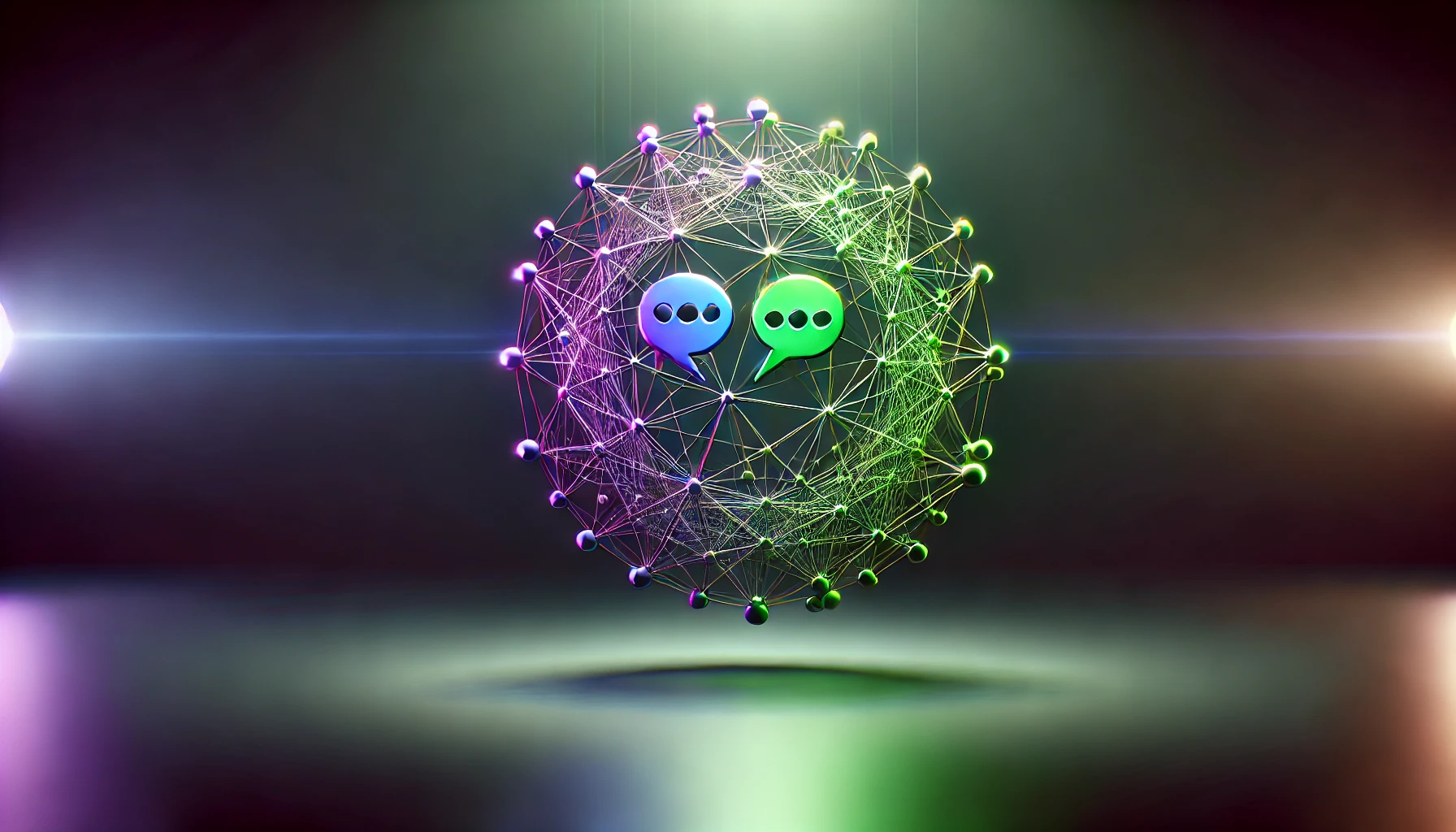
Building Relationships: Mastering Connection and Collaboration
Building strong relationships is essential for personal and professional success. Cultivate genuine connections through empathy, trust, and effective communication. By understanding and managing emotions, actively listening, and being authentic, you can build a robust support network. Overcoming challenges like personal insecurities, cultural differences, and time constraints is crucial for nurturing lasting relationships. Remember, building relationships is a journey, not a destination. Invest time and effort in cultivating these connections for a fulfilling and rewarding life.
Read more
Public Interaction: Engaging with Confidence
The article "Public Interaction: The Art of Engaging with Communities" emphasizes the importance of effective public interaction in today’s world. Defined as the art of communicating and connecting with groups, this skill blends verbal and non-verbal communication, emotional intelligence, and cultural awareness. Benefits include stronger communities, professional opportunities, inclusivity, and inspiration. Key development tips are cultivating emotional intelligence, practicing active listening, showing genuine interest, being authentic, and clear communication. Overcoming social anxiety and embracing cultural differences are crucial. Real-life examples like Thomas Edison and Gandhi highlight the impact of effective public interaction. Additionally, negotiation skills complement and enhance public engagement, ultimately driving positive change in personal and professional relationships.
Read more
Initiative: Leading Change Proactively
The article "Initiative: Skills that Raise Your Flag" emphasizes the critical role of initiative in personal and professional growth. Initiative is defined as the proactive ability to start tasks independently, driving innovation, problem-solving, and leadership. The article distinguishes initiative from being enterprising, explaining that while initiative is about taking the first step, enterprising involves sustaining and growing that effort. It highlights the benefits of initiative, including enhanced employee morale, increased productivity, and fostering a culture of innovation. Strategies to develop initiative, such as promoting a proactive mindset, encouraging ownership, and providing training, are discussed alongside real-life examples from companies like Pixar and 3M. The article concludes by emphasizing that initiative, complemented by creativity and idea generation, is essential for driving progress and success in any organization.
Read more